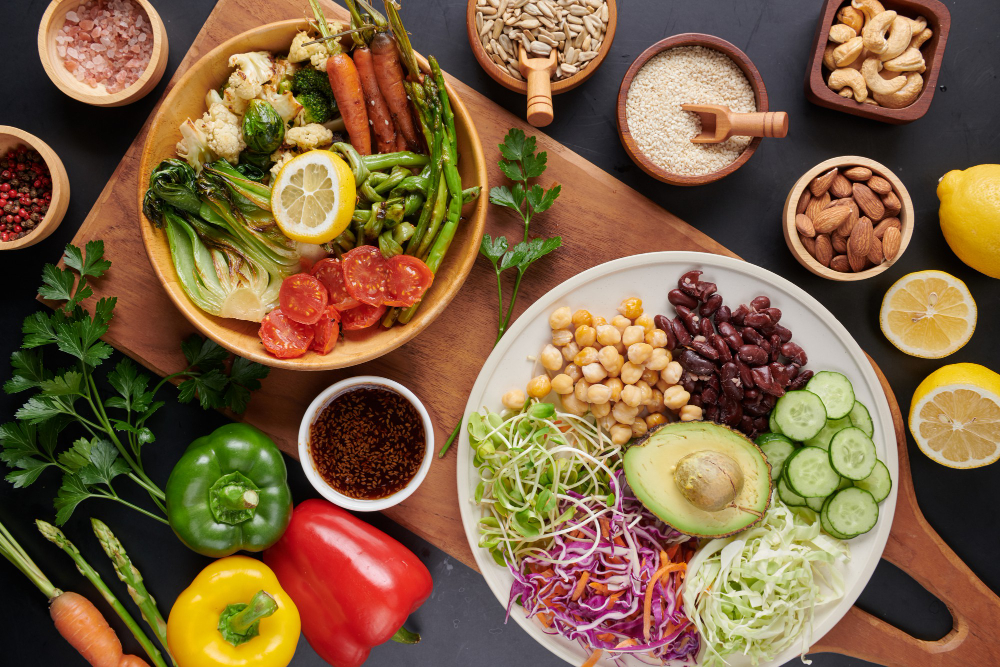Is salsa healthy? Well, it is a question many ask as they scoop up another chipful at a party or dollop it onto their tacos. Salsa, a staple in Mexican cuisine, has become a beloved condiment worldwide.
But beyond its tangy, spicy flavor, salsa boasts several health benefits. Here is your ultimate guide:
What is Salsa?
Salsa, which means "sauce" in Spanish, is a versatile condiment typically made from tomatoes, onions, peppers, and cilantro. These ingredients are blended or chopped together to create a flavorful addition to various dishes.
There are many variations of salsa, including red salsa, green salsa, and fruit-based salsas. Thus, each offering a unique taste experience.
However, the beauty of salsa lies in its simplicity and freshness. Most recipes are raw, meaning the ingredients retain their natural nutrients. This freshness not only enhances the flavor but also contributes to the health benefits salsa provides.
What are the Ingredients of Salsa?
The primary ingredients in salsa are tomatoes, onions, and peppers, which form the base of most recipes. Tomatoes are rich in lycopene, a powerful antioxidant. Onions add a subtle sweetness and are packed with vitamins C and B6. Peppers, whether mild or hot, contain capsaicin, known for its anti-inflammatory properties.

Toa / Unsplash / Tomatoes, onions, and peppers are the primary ingredients of salsa. Adding leafy greens is a plus!
Apart from that, cilantro and lime juice are often added for extra zest. Cilantro is a good source of antioxidants and aids in digestion. Lime juice provides vitamin C and a tangy flavor that balances the other ingredients.
Some salsas may include additional items like garlic, corn, or black beans, each contributing extra nutrients and flavors.
How to Make Salsa At Home?
Making salsa at home is straightforward and allows for customization to suit personal tastes. Start with ripe tomatoes and chop them finely. Dice onions and peppers to your preferred size and mix them with the tomatoes. Add chopped cilantro and squeeze in fresh lime juice. Season with salt, pepper, and a pinch of cumin for an extra kick.
For a smoother salsa, blend all the ingredients until you reach your desired consistency. You can also experiment with roasted tomatoes or peppers for a smoky flavor.
Is Salsa Healthy?
Salsa is beneficial for heart health due to its high content of lycopene and fiber. Lycopene, found in tomatoes, is linked to a reduced risk of heart disease. Fiber helps lower cholesterol levels and improves overall cardiovascular health.
Thus, regular consumption of salsa can be a tasty way to support your heart.
Salsa is High in Vitamins and Minerals
Is salsa healthy, you ask? Well, it is a nutrient-dense food. Meaning, it is packed with vitamins and minerals while being low in calories. Tomatoes provide vitamins C and A, crucial for immune function and eye health.
Onions and peppers add more vitamin C and folate, essential for cell growth and metabolism. Likewise, cilantro adds vitamin K, important for blood clotting and bone health.
Salsa is Low in Calories!
One of the great things about salsa is that it is low in calories. A generous serving typically contains fewer than 50 calories, making it a guilt-free addition to meals.

Taste Inspired / Whether you are watching your weight or simply looking for a healthy snack, salsa fits perfectly into a balanced diet.
Ideally, pair it with vegetables instead of chips for an even healthier option.
Helps in Digestion
The ingredients in salsa can aid digestion. Tomatoes and peppers contain fiber, which promotes regular bowel movements and a healthy gut. Cilantro is known to soothe the digestive system and can help alleviate symptoms of indigestion. The freshness of salsa, with its raw ingredients, ensures that you get the most digestive benefits.
So, is salsa healthy? Absolutely. It is a delicious way to incorporate more vegetables into your diet while reaping numerous health benefits.










